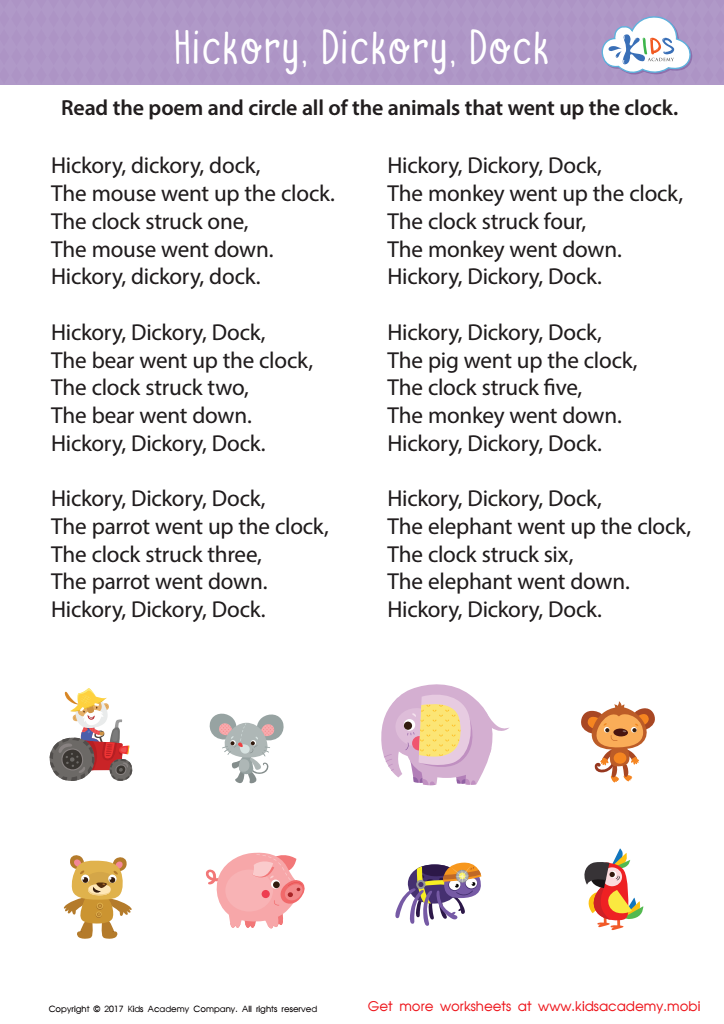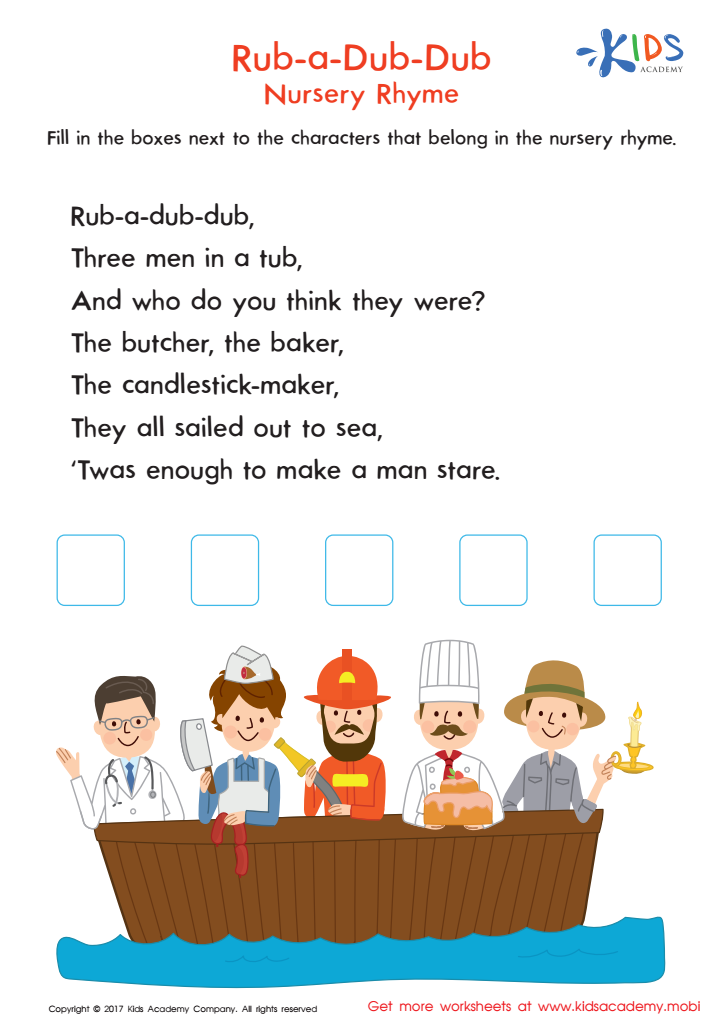Extra Challenge Poems worksheets activities for Ages 5-8
3 filtered results
-
From - To
Discover our engaging "Extra Challenge Poems Worksheets" for children ages 5-8! These carefully crafted activities promote literacy and creativity while offering a fun twist to traditional learning. Designed to challenge young minds, our worksheets include rhyming games, fill-in-the-blank poems, and illustrated prompts that encourage self-expression and critical thinking. Each activity supports early reading skills and fosters a love for poetry. Perfect for enhancing classroom learning or home study, these worksheets are easy to print and come in vibrant designs to capture children’s attention. Inspire your little poets today with hands-on learning that combines joy with educational growth!


Baa Baa Black Sheep Printable


Hickory Dickory Dock Sequencing Worksheet


Rub a Dub Dub Printable
Parents and teachers should care about Extra Challenge Poems activities for ages 5-8 because they offer a valuable way to enhance children's literacy and creative thinking skills while fostering a love for language. Poetry encourages young learners to explore words, sounds, and rhythms, enhancing their vocabulary and phonemic awareness. When children engage in Extra Challenge Poems, they are invited to think critically and creatively as they interpret and produce poetic works, stimulating cognitive development.
Additionally, these activities bolster emotional expression and understanding. Poetry often addresses feelings and experiences, allowing children to articulate their thoughts and emotions in a safe environment. This not only enhances their emotional intelligence but also nurtures empathy as they explore different perspectives through poetry.
Moreover, Extra Challenge Poems are fun and interactive, making learning enjoyable. They can be integrated into diverse literacy practices, promoting collaboration among peers. Engaging parents in these activities extends learning beyond the classroom and builds a supportive community focused on language development.
Ultimately, Extra Challenge Poems activities align with early education goals by fostering foundational literacy skills, creative expression, and social-emotional growth. By emphasizing these activities, parents and teachers can cultivate well-rounded, confident young learners.
 Assign to My Students
Assign to My Students















